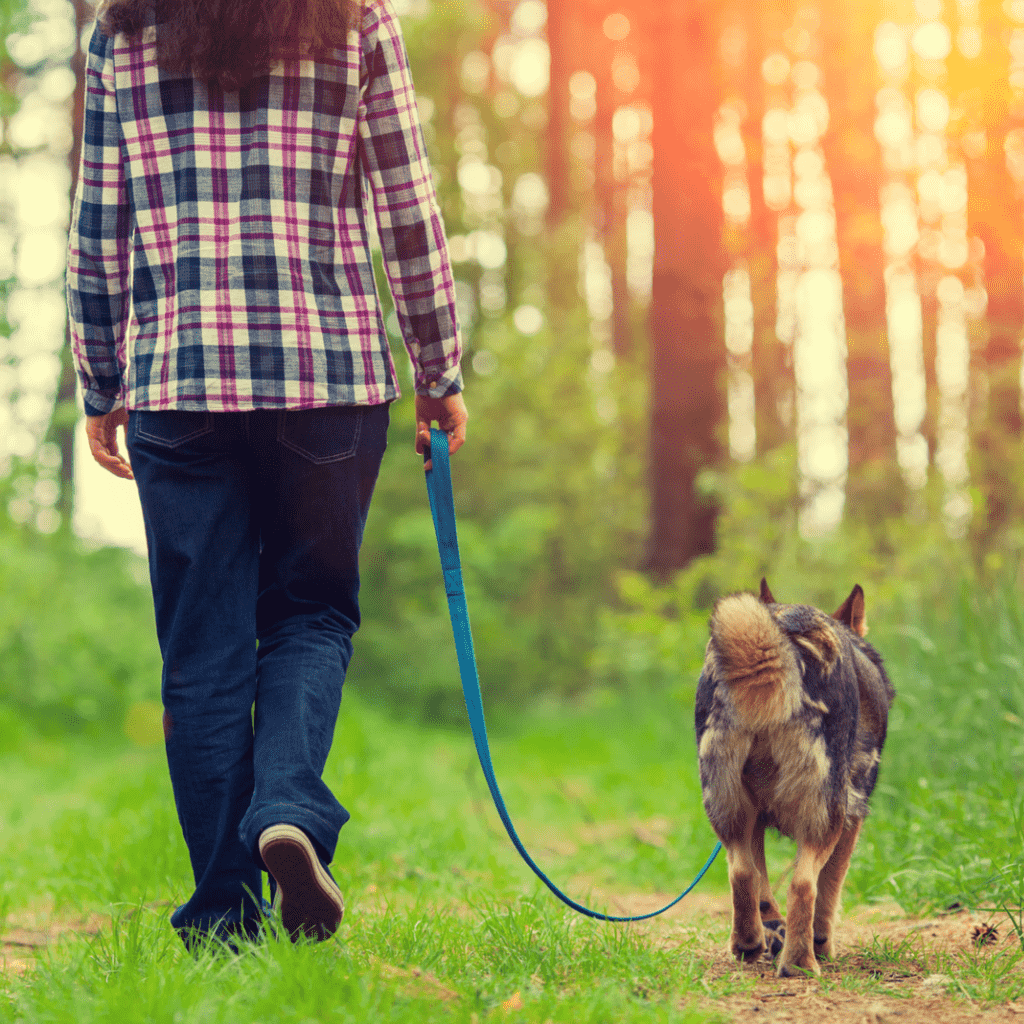Is your dog barking and lunging at other dogs on your walks?
Are you frustrated? fed up? Embarrassed?
Are you walking in the early morning or late at night to avoid others?
You’ve become *that person*. The dog and human that other dog walkers avoid. And the ones that don’t avoid you are just a pain because they let their dogs get too close. Every. Damn. Day.
Your dog is bloody amazing at home with the people they love. It’s only when they catch sight (or sound) of another dog that they have a personality transplant.
You wish that other people could see your dog the way you do. It’s embarrassing and scary when they are barking and lunging on the lead at every dog they see. It all feels out of control and you’re anxious about what might happen if they get close to another dog.
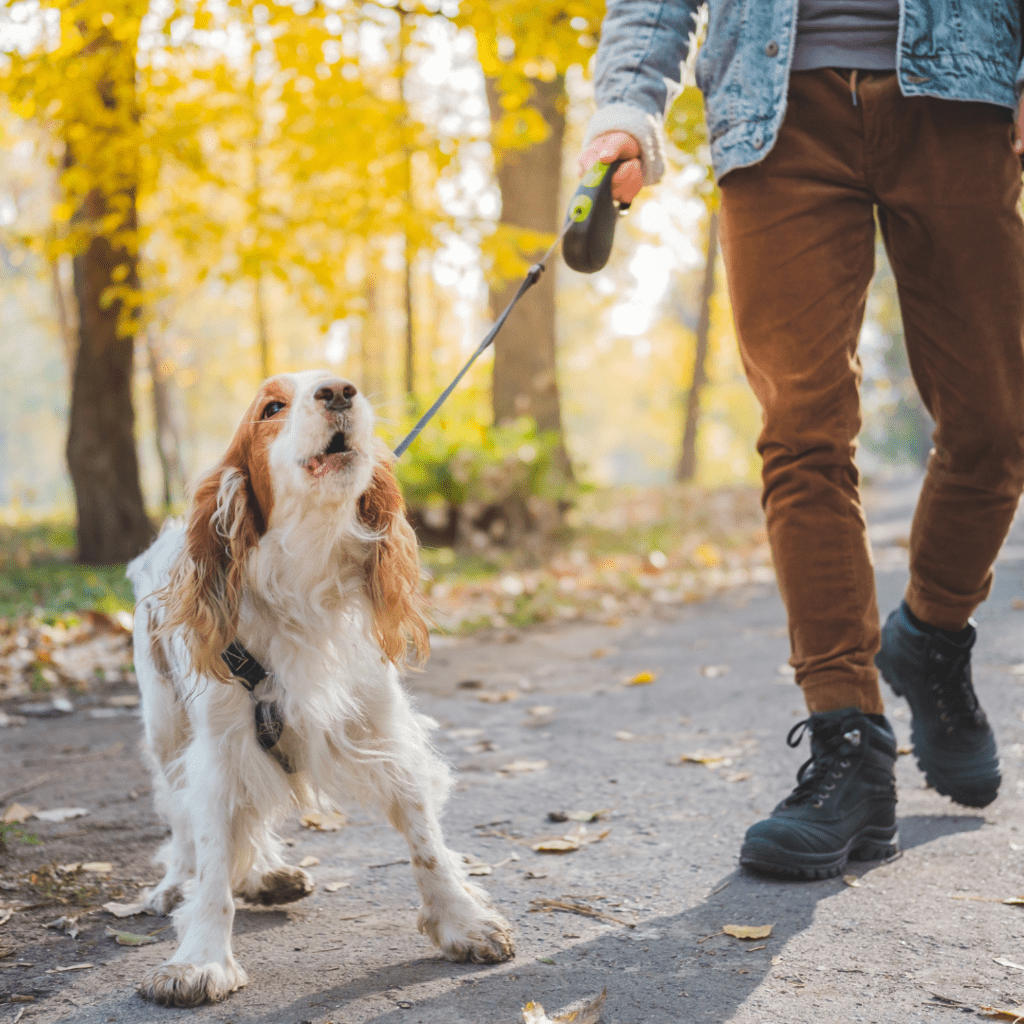
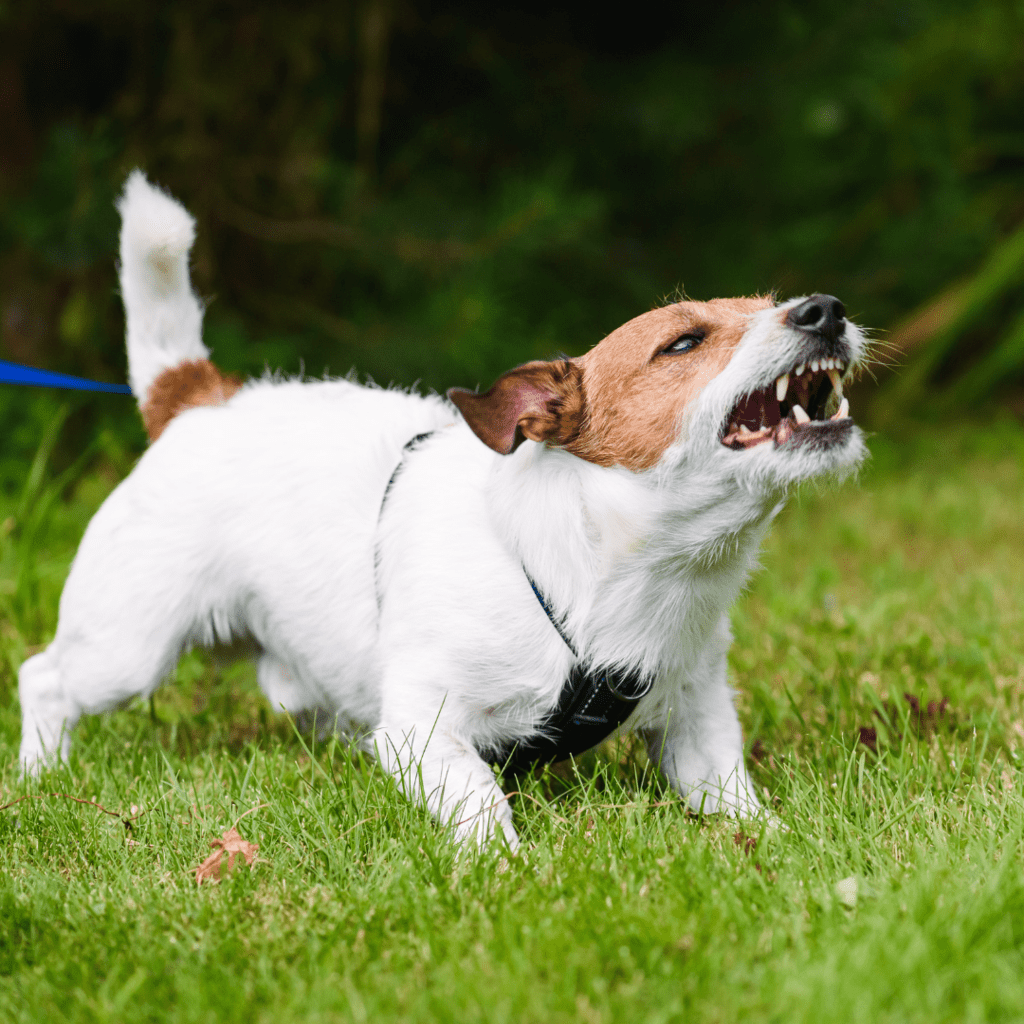
You’re worried that your dog’s behaviour might be all your fault, or maybe you’ve been told that it is. That you’re not *alpha* enough or a good enough leader for your dog. You think things are getting worse, and you know you have to do something. It would be great if there really was a magic wand, but you know that’s unrealistic. You’re prepared to put in the training but you just don’t know what to do.
You’ve spent hours scouring the internet for information but all you’ve discovered is that everyone has an opinion and they are all different. You don’t like the thought of having to punish your dog or squash their spirit but it’s not like your dog takes treats when they are busy shouting at everything either. And you wonder what difference treats would do in this situation anyway.
You dream of being able to walk with your dog and enjoy the outdoors together. With your dog calmly by your side, they head off to investigate some interesting sniffs before checking back in with you.
Your greatest fantasy is that you will one day be able to walk where there are other dogs and your dog will stay with you, unfazed by the others around you. Where you are confident, relaxed and proud of how your dog behaves.
You want to have a plan to follow. So you know what you need to do and when. And you want someone who will walk you through it, so you’re not alone. Someone who will love your dog almost as much as you do.
Even when they’re being a twonk.
Calm About Canines is perfect for you if….
- You dream of being able to enjoy the outdoors with your dog without worrying about other dogs
- You realise there are no quick fixes and that behaviour change (for both you and your dog) takes time.
- You want support and understanding, both from an expert and other people with similar problems to you.
- You want to build a positive relationship with your dog while addressing the problems you have.
- You like to have a plan broken down into smaller steps and track your progress as you go
How a coaching package works
1. Book a call
Book a free 15 min discovery call and to discuss what option is the right one for you.
After the call I'll send you all you need to book right away.
And if we aren't a good fit, I can give you information on who or what may suit you better.
1. Book a call
Book a free 15 min discovery call and to discuss what option is the right one for you.
After the call I'll send you all you need to book right away.
And if we aren't a good fit, I can give you information on who or what may suit you better.
2. Support from the start
We'll start with an online consult so I can work out what's going on and share my expert advice.
I'll set out a clear plan of action and coach you through the first steps.
3. Your Individual Plan
You don't need to worry about remembering everything. I'll send you material immediately after the first session.
I'll then follow up with a pack of step by step instructions to move you on, video examples and other resources so you know exactly what to do and when.
4. Ongoing Support
Now you know what to do you can start to put the plan into action. You'll have easy access to my support along with feedback on training videos you send me. I'll be able to guide you through any problems to get you back on track.
You'll have follow up online coaching sessions laying out the plan step by step as you progress.
5. Build a great relationship
Dogs are a joy, but can also be hard work. It can be a struggle to see how far you've come when working through a behaviour problem. That's why I include a reflection practise in my packages.
You'll be able to build a great relationship with your dog and look forward to a bright future. All while celebrating just how far you've traveled together.
Are you ready to get started?
You can schedule your initial consultation upon booking your package.
Current wait times to start are between 2-4 weeks.
Where necessary, you'll receive immediate advice and actions to minimise risk and prevent the problem from worsening before the package starts.
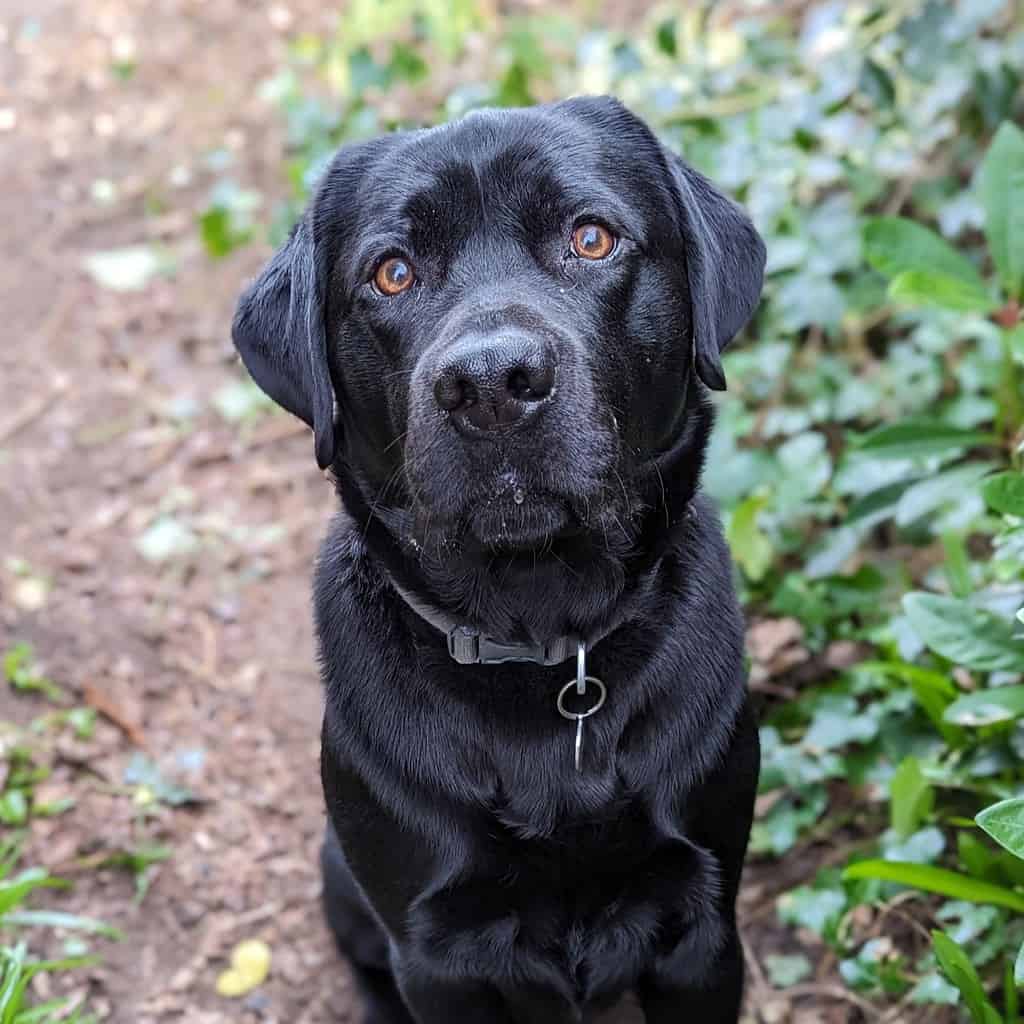
“Needed someone to understand Roger and help us support him.
We’ve received so much bad advice about Roger from others………..and it was absolutely all nonsense of course. He just needed someone to understand him and help us support him where he needs it.
Thank you so much for being that person for us. There are so many spot-on bits of advice that you’ve given me that I never forget. I think that consistency is what has helped the most.”
Alicia (with Roger)
I can help you
go from a dog who barks, growls or lunges at other dogs on your walks, to one who walks calmly by your side and turns to you when they see another dog.
My Calm About Canines programme is a tried and tested formula that is still flexible enough to be bespoke for you and your dog so you can both enjoy your walks together in peace.
Veterinary referral is required prior to working with you.
You may be able to claim back some or all of the cost of my support through your pet insurance, due to my qualifications and accreditations. You should check with your insurer whether you are covered and for what amount.
Package details
- 8-10 (standard) or 12-14 (intensive) weeks of support and coaching from an expert who’s been where you are.
- 4 (standard) or 12 (intensive) knowledge sessions so that you and your dog can learn the skills you need with real-time expert coaching.
- Structured, yet flexible programme with a personalised plan that will help you stay on track and achieve your goals.
- Written training plans with audio and video support so you have easy reminders of what to do and can easily share everything you’re working on with any other members of the family who might not be able to make it to the sessions.
- Video feedback on your training throughout the package.
- No more inconsistency, frustration or anxiety about how your dog will behave. You’ll have clear strategies to improve your dog’s behaviour around other dogs.
- Access to office hours for further support alongside other Tails We Win clients.
- A training pack with the items I recommend and use myself to get you started on the right foot.
£289
Lite
Initial Consultation only
Best for: dipping your toe in if you’re not sure you’re ready for a package.
For initial management and enrichment strategies to prevent things from getting worse and ensure your and your dog’s needs are being met.
Most people need 3-6+ sessions to meet their goals. Non-package follow-ups are £189/session.
It is possible to upgrade to a package at the end of the consultation.
£899
Standard
4 sessions in 8-10 weeks
Best for: dogs who have 1 or 2 issues to work through where the main issue is reactivity or aggression towards other dogs.
For a deeper understanding of how you can help your dog so your training is slick, efficient and full of fun rather than a battle.
Recommended frequency of a coaching session every 2 weeks.
£2199
Intensive
12 sessions in 12-14 weeks
Best for: dogs who have several issues to work through but where the main issue is reactivity or aggression towards other dogs.
A true deep dive into learning about your dog’s behaviour. What motivates them to do what they do and how you can help support them for successful change.
Recommended frequency of 2 sessions a week to start, decreasing to 1 a week, then 1 every 2 weeks as the package progresses.
Behaviour FAQs
Can't you just give me some tips during the Discovery call?
I’d love to be able to solve behaviour problems over the phone in less than an hour, but sadly it’s just not possible. Nobody can make such a promise.
Every dog and situation is individual and I can’t safely give advice without first assessing your dog.
For a real resolution it is vital to understand the underlying reasons for your dog’s behaviour and that can only happen with a full assessment.
Will my dog’s behaviour get better on its own?
It’s unlikely. It’s much more likely to get worse as time goes on. You’ve probably been thinking about getting help for a while because the behaviour seems to have got worse, but you’re not sure whether it is bad enough.
Often I don’t get called until there has been a particular incident that has scared people in some way. By then the problem has been developing for a long time and has become quite ingrained. It is never too early to address behaviour concerns.
What about training classes, will they help?
Classes are great for learning how to teach dogs everyday manners or particular skills like coming when called. In order to learn your dog needs to be comfortable and relaxed in that environment and generally dogs that are showing problem behaviours like those above just aren’t relaxed, confident dogs.
How much effort will I have to put in?
You’ll probably have to spend an extra 15mins each day doing specific training, plus changing routines or implementing new management to prevent problem behaviour.
Although it might feel difficult at first, the changes you’ll see in your dog and your life together will make it more than worthwhile.
How long will it take to see results?
Why do I need to get a veterinary referral?
It’s important to work under referral to make sure your dog has no medical issues contributing to a problem behaviour. Lots of medical conditions can affect behaviour including joint pain, thyroid disease, neurological issues, skin problems and gut issues like an irritable bowel. Medical problems need to be treated first so that you aren’t wasting your time trying to change behaviour that has a medical cause.
What if my dog has more than one problem?
It's common for dogs to have big feelings about more than one thing and so have problem behaviours in multiple situations.
It may be possible to work with more than one type of problem within a package, but it depends on the problems and the reasons for them. Packages can be increased to account for additional problems and the time needed to work with you on them.
Pick the problem that is the biggest headache for you and book a call for that package. Make sure to tell me about any additional problems you will want to address and I will discuss options with you at the discovery call.
What guarantees do you offer?
What I can guarantee you is:
- A safe, non-judgmental environment
- Commitment to help you seek relief, change and improvement
- Dedication to kind, fair, science-based training methods for both you and your dog.
Why should I work with you?
Importantly I also understand what you’re going through —I’ve been there with my own dogs in the past. I personally understand the embarrassment, fear and guilt that having a dog with behaviour problems entails.
Find out more about me.
Can't you just give me some tips during the discovery call?
I’d love to be able to solve behaviour problems over the phone in less than an hour, but sadly it’s just not possible. Nobody can make such a promise.
Every dog and situation is individual and I can’t safely give advice without first assessing your dog.
For a real resolution it is vital to understand the underlying reasons for your dog’s behaviour and that can only happen with a full assessment.
Will my dog’s behaviour get better on its own?
Often I don’t get called until there has been a particular incident that has scared people in some way. By then the problem has been developing for a long time and has become quite ingrained. It is never too early to address behaviour concerns.
What about training classes, will they help?
Classes are great for learning how to teach dogs everyday manners or particular skills like coming when called. In order to learn your dog needs to be comfortable and relaxed in that environment and generally dogs that are showing problem behaviours like those above just aren’t relaxed, confident dogs.
How much effort will I have to put in?
You’ll probably have to spend an extra 15mins each day doing specific training, plus changing routines or implementing new management to prevent problem behaviour.
Although it might feel difficult at first, the changes you’ll see in your dog and your life together will make it more than worthwhile.
How long will it take to see results?
why do i need to get a veterinary referral?
what if my dog has more than one problem?
It's common for dogs to have big feelings about more than one thing and so have problem behaviours in multiple situations.
It may be possible to work with more than one type of problem within a package, but it depends on the problems and the reasons for them. Packages can be increased to account for additional problems and the time needed to work with you on them.
Pick the problem that is the biggest headache for you and book a call for that package. Make sure to tell me about any additional problems you will want to address and I will discuss options with you at the discovery call.
what guarantees do you offer?
What I can guarantee you is:
- A safe, non-judgmental environment
- Commitment to help you seek relief, change and improvement
- Dedication to kind, fair, science-based training methods for both you and your dog.
Why should I work with you?
Importantly I also understand what you’re going through —I’ve been there with my own dogs in the past. I personally understand the embarrassment, fear and guilt that having a dog with behaviour problems entails.
Find out more about me.


My dog is really reactive around other dogs—will positive reinforcement methods really work for them?
Yes, absolutely! Positive reinforcement focuses on teaching your dog new, more appropriate behaviours without causing fear or stress.
It’s scientifically proven to help change the emotional response behind the reactivity, not just the behaviour itself.
While it may take time and consistency, the results are lasting and promote a stronger bond between you and your dog.
What if my dog doesn’t take treats during walks when they’re reactive?
This is a common concern, and we’ll address it in our training.
If your dog is too stressed to take treats, we’ll work at a distance where they feel more comfortable, gradually reducing that stress over time.
We’ll also explore other forms of reinforcement, like play, naturally occurring reinforcers, or even just distance from what’s making them uncomfortable.
How long will it take to see results?
Every dog is different, so the timeline for results will vary. However, many clients start to see small improvements within the first few weeks as we begin implementing changes.
Full behaviour modification can take several months, depending on the severity of the reactivity, but my packages are designed to support you throughout the process.
Will I need to avoid other dogs forever?
No! The goal of our training is to help your dog become more comfortable around other dogs so that you can enjoy your walks again without the need for avoidance.
At first, you may need to manage your walks to set your dog up for success, but as training progresses, your dog will be able to handle more encounters calmly.
I’ve been told my dog’s behaviour is my fault—am I to blame?
It’s easy to feel guilty, but it’s important to understand that your dog’s behaviour is not about blame.
Dogs can become reactive for many reasons, and while your relationship with your dog plays a role in their training, it’s not about being "alpha".
I focus on working together with your dog to create positive change, without judgement.
Can I claim this service on my pet insurance?
Many pet insurance providers will cover behaviour consultations from qualified professionals.
As a Clinical Animal Behaviourist, my services are often covered by insurance, but I recommend checking with your provider to confirm whether you are covered and for what amount.
What happens if I can’t attend all of the sessions?
I offer flexibility with scheduling to accommodate your needs.
If you need to reschedule a session, just let me know with as much notice as possible, and we’ll find a time that works.
Plus, you’ll have access to resources and materials between sessions to keep your training on track.
I’m really busy—how will I fit training into my daily life?
We’ll work together to create a plan that fits into your lifestyle.
Training doesn’t have to take hours out of your day—short, regular sessions are often more effective.
I’ll give you practical strategies that you can easily integrate into your routine.
What if my dog doesn’t improve?
While results can’t be guaranteed, I tailor the training to suit your dog’s individual needs. If something isn’t working, we’ll adjust the plan to find what does.
My goal is to support you and your dog every step of the way, ensuring that progress is made at a pace your dog is comfortable with.
I’ve tried training before, and it didn’t work. How is this different?
Many clients come to me after feeling let down by previous training attempts. What sets my approach apart is the tailored, step-by-step plan specifically designed for your dog and their emotional needs.
I focus on helping you understand the root cause of your dog’s behaviour, not just managing symptoms. We work together to ensure the methods are practical, sustainable, and suited to your lifestyle.
My dog has been reactive for years—can they really change now?
Absolutely! While it may take time, older dogs can learn new behaviours and respond well to positive reinforcement training. The key is consistency and addressing the underlying emotions driving the behaviour.
With the right approach, even long-standing reactivity can be improved, leading to calmer, more peaceful walks.
I’ve heard positive reinforcement takes too long to work—will I be stuck in training forever?
Positive reinforcement is a gradual process, but it leads to long-term, sustainable results. We’ll celebrate small wins along the way, and many clients notice improvements early on.
My goal is to empower you with the tools and knowledge to manage your dog’s behaviour confidently, without needing endless sessions.
I don’t have time for constant training.
Training doesn’t have to dominate your day! We focus on integrating training into your everyday routine. Short, consistent sessions—sometimes just a few minutes at a time—are often the most effective.
I’ll help you create a plan that works within the time you have, so training feels doable, not overwhelming.
What if I don’t see progress fast enough?
It’s natural to want quick results, but behaviour change takes time, especially with reactivity. I’ll be with you throughout the journey, offering support and adjustments to the plan as needed.
We focus on building real, lasting change rather than short-term fixes, and we’ll monitor progress to ensure we’re moving in the right direction.
My dog’s behaviour is too extreme—will this really help them?
Even dogs with severe reactivity can benefit from a well-planned, positive approach. We take things at your dog’s pace, making sure they feel safe and understood.
By addressing the emotions behind the behaviour, we can help your dog start to feel more comfortable and less reactive over time, no matter how challenging their behaviour seems right now.
I’m worried about the cost—what if it’s not worth the investment?
I understand that committing to a package can feel like a big decision. The investment you make now will help improve your quality of life with your dog for years to come. Think of it as investing in your dog’s emotional well-being and your own peace of mind.
Plus, many clients find they save money in the long run by avoiding repeated short-term fixes and addressing the root cause of the problem.
I’m not confident about my training skills—what if I can’t do it?
That’s exactly why I’m here! I’ll coach you step by step, giving you the confidence and knowledge to succeed. You won’t be left to figure it out alone.
I provide ongoing support, feedback, and adjustments to ensure you and your dog can both thrive. Training is a team effort, and I’ll be right there to guide you.
Why do I need a veterinary referral before starting behaviour training?
A veterinary referral ensures that your dog’s behaviour isn’t being influenced by an underlying medical condition. Sometimes, pain, illness, or discomfort can contribute to reactive behaviour, and it’s important to rule out or address any physical health issues before beginning behaviour modification.
Working closely with your vet means we can create a comprehensive plan that considers both your dog’s physical and emotional well-being.
Why is it important to work with a qualified Clinical Animal Behaviourist?
Choosing to work with a qualified Clinical Animal Behaviourist ensures you’re getting expert advice grounded in the latest scientific research. I have the experience and credentials to create a personalised plan that is both effective and kind to your dog.
Unqualified trainers may rely on outdated or harmful methods, whereas I’m committed to using positive, force-free techniques that focus on improving your dog’s emotional state as well as their behaviour.
Can you guarantee results?
While I can’t guarantee specific results—because every dog is unique, and progress depends on various factors such as consistency, environment, and individual temperament—I can guarantee the way I will work with you.
I promise a non-judgemental, compassionate approach, providing personalised support that meets you and your dog where you are. Together, we’ll create a tailored plan, adjust as needed, and I’ll be with you every step of the way.
You’ll never be made to feel judged or blamed; instead, I’m here to support and empower you to help your dog in the best way possible.


